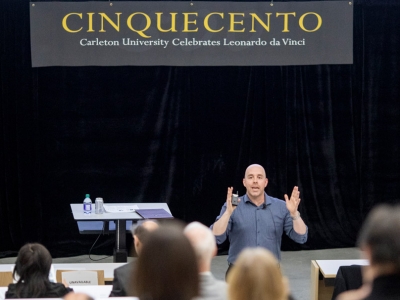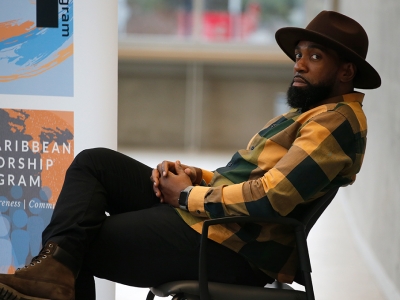By Dan Rubinstein
When incoming President and Vice-Chancellor Wisdom Tettey first visited the campus last fall, his favourite moments involved meeting and talking to students.
Those conversations, and the energy of Carleton’s vibrant community, reaffirmed his belief in the transformative power of higher education. They reminded Tettey, who began serving as the university’s 17th president on New Year’s Day, of his own academic path — an irrepressible drive to question and learn and use the post-secondary experience to shape a more equitable and sustainable future.
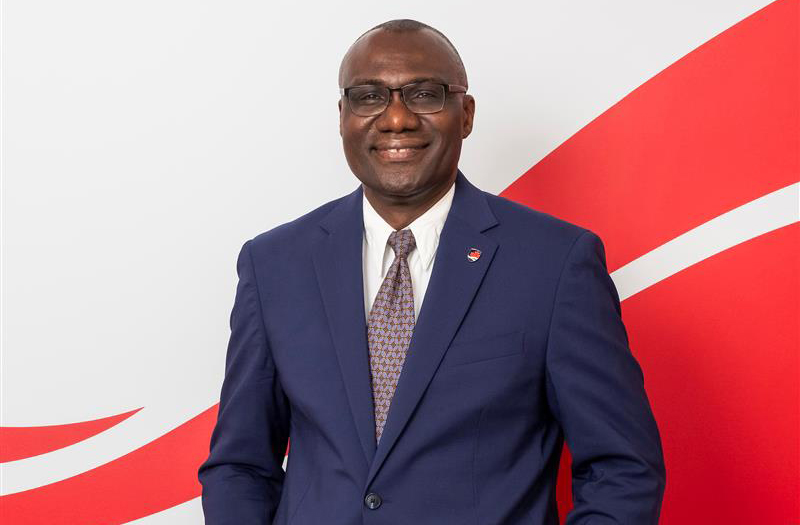
President and Vice-Chancellor Wisdom Tettey
“Students have always been at the heart of what we do as universities,” says Tettey, “and after spending a short amount of time with Carleton students, getting a feel for the work that is happening here, I can already see that they’re going to advance Canada and the world in new and innovative ways.
“Our role as an institution is to nurture and cultivate ideas and people, but students are particularly regenerative. They come here with a broad range of experiences and challenge us to rethink how we do things. Students are a barometer of the now and for what the future might bring.”
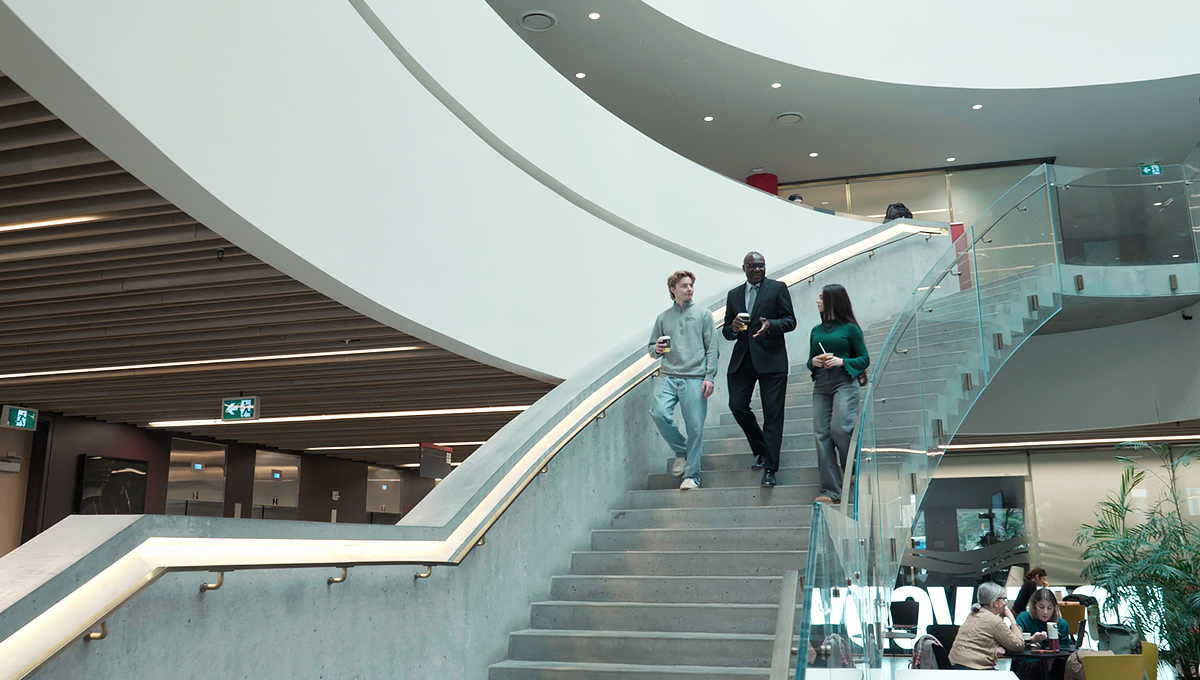
An Inclusive Entrepreneurial Mindset and Spirit of Innovation
Tettey started going to school in a lower-class neighbourhood in Accra, the capital and largest city in Ghana — a place he says many people consider the “margin of the margins.”
Even though his mother did not have formal schooling, she was a staunch believer in the power of education. Tettey had regular access to newspapers and the household was a vibrant gathering place for intellectual engagement with older siblings, cousins and friends who loved to debate, showing young Wisdom that curiosity and ideas could expand his world.
“Education can open so many doors,” he says.
“It’s one of those areas where you’re not encumbered by other people’s perceptions of what you should be. You might be sitting in a classroom with people who are economically better off than you, but what matters is your critical engagement with knowledge.
“Coming to Carleton, I’m excited about helping to give people the chance to be in a space where we can grow to be our best selves and make valuable contributions to society.”
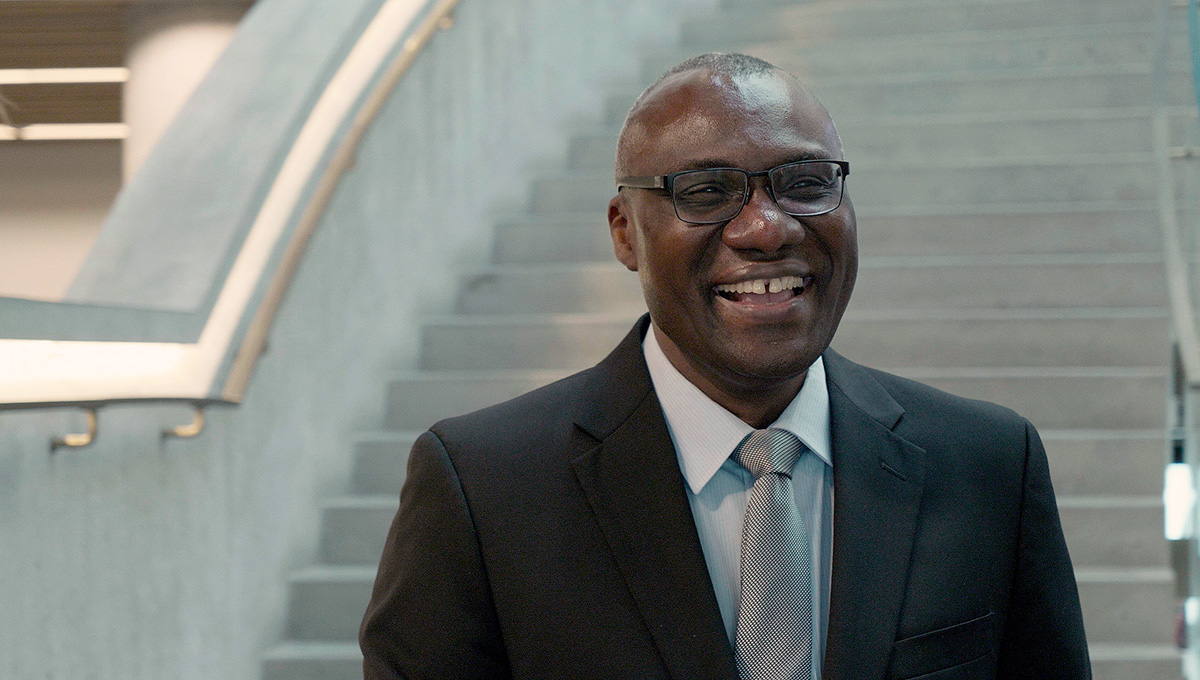
Tettey has promoted excellence at every institution that he has been part of over the years and notes that this outcome is deepened and expanded by a mutually reinforcing commitment to equity and inclusion.
“There’s always an opportunity to learn and grow,” he says, “because you can always continue to push the boundaries of knowledge. But, more importantly, we can make a more meaningful and positive impact on society by intentionally fostering a learning and scholarly environment where excellence, equity and inclusion enrich one another.”
This approach to education, he says, should be one of the fundamental missions of universities, and the Carleton community’s commitment to it is what intrigued Tettey upon discovering that the university was looking for a new president.
“I asked myself, is this a place where I can do the things that I believe in? Does it have the fundamental values and principles that undergird my own motivations?” The move to Carleton, he adds, was the result of a “bidirectional” decision making process.
“There are tremendous opportunities for Carleton, and also an opportunity for me to continue to grow and contribute in ways that I might not have been able to previously. There’s a stimulating, enriching environment that I can draw from.
“Relative to other places, Carleton is not as constrained by inflexible ways of doing things,” he continues.
“It has a nimbleness, an entrepreneurial mindset and a spirit of innovation that are purposefully inclusive. There’s a certain willingness to take thoughtful, calculated risks to get to something that may be on the other side. I want to be part of this adventure.”
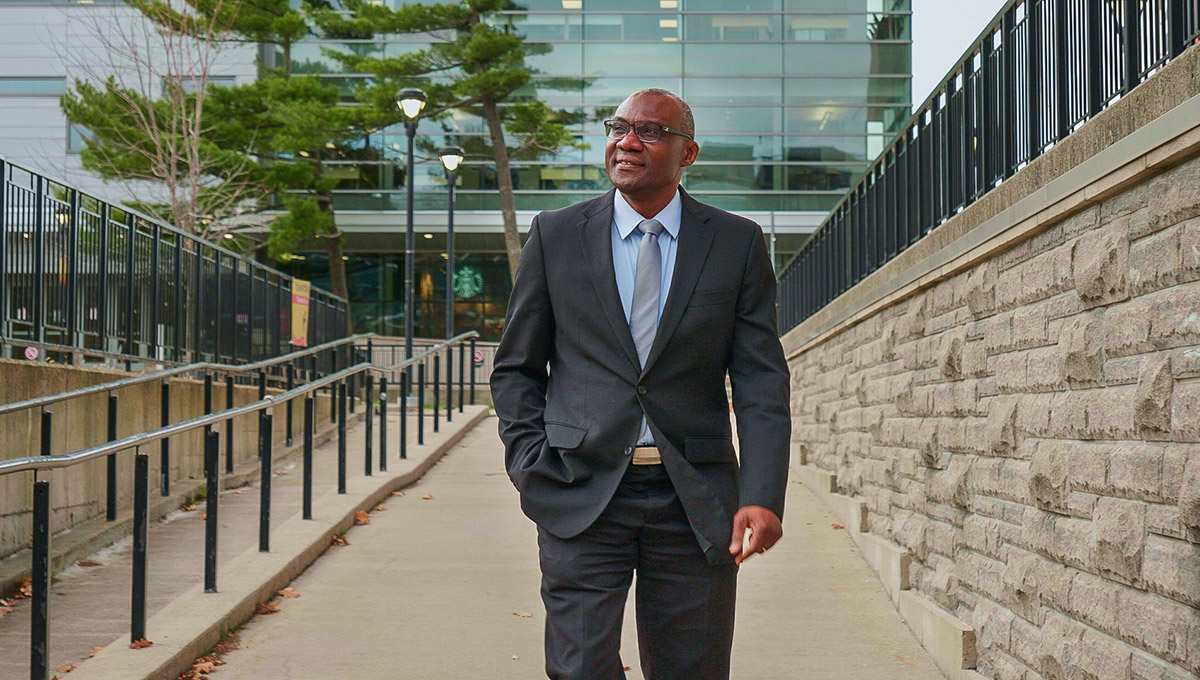
Maintaining the Momentum with Inclusive Learning and Scholarly Excellence
Although this is just his first week on the job, Tettey has several clear priorities at Carleton. First and foremost, the university has to ensure its financial health.
“To accomplish this, we have to put our minds together and act together in the spirit of mutuality, because our institution’s financial health is a prerequisite for pursuing our collective goals and sustaining our shared mission,” he says.
“The task we face is not an easy one. It will require serious introspection about what we need to do to sustain our momentum as an institution on the rise, one that is dedicated to teaching, learning and scholarly excellence; engenders inclusive and meaningful impact; and garners global prominence as a destination of choice for students, partners, supporters and the community at large.”
Secondly, he wants a continued focus on equity, diversity and inclusion at Carleton, with a deep and enduring commitment, demonstrable accountabilities and evidence-based outcomes that make the university a national leader in this area. As the architect of the Scarborough Charter — a commitment by institutions across Canada to combat anti-Black racism and foster Black inclusion in higher education — he sees this as a collective obligation on everyone’s part.
“In the minds of some people, there’s an inverse relationship between building inclusive communities and the quality of what we do,” says Tettey. “But the evidence shows that that’s not the case.”
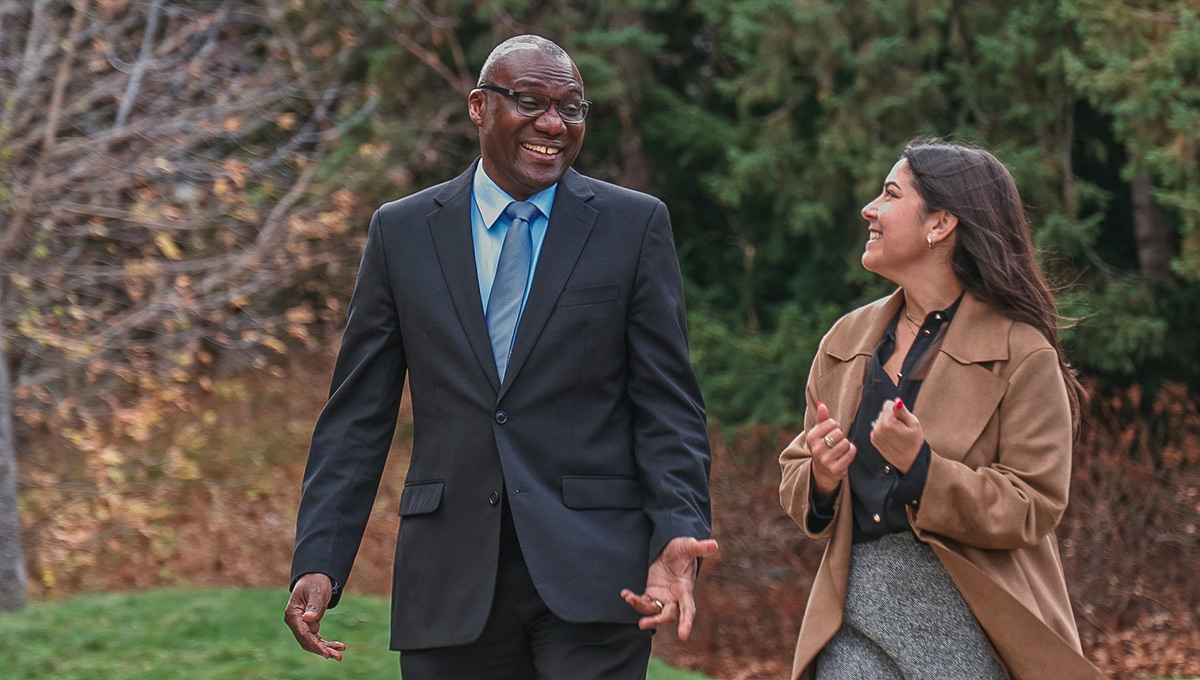
Significant advances in all aspects of society, from science and technology to the arts and humanities, have been led by people of every race, ethnicity, ability and gender, and by teams of people from various places and backgrounds. “Humanity needs all of the brainpower we can muster in the proverbial room if we want to be at our creative and innovative best,” says Tettey.
“This is not about a single issue, nor can it be an afterthought. Inclusion and equity are not tangential to what we do. They are intrinsic and integral to our mission and necessary for any thriving community. We have to continue to make this a community that is equitable, that is just, that is accessible and that is capable of lifting everybody up. Why would we want to leave any talent behind?”
Thirdly, Tettey will be focused on enhancing Carleton’s renowned student experience, ensuring that the learning environment is as robust and supportive as possible.
“We need to have the structures in place,” he says, “so our graduates can be adaptable global citizens and leaders, whoever they are and wherever they go.”
As a globally oriented institution, Carleton is well situated, Tettey says, to bring the world to campus, whether through research or partnerships or pedagogy. And the university is also poised to radiate out into other spaces to drive intellectual advancement, innovation and community impact.
This means, for example, leveraging Carleton’s location in the national capital to promote regional and international partnerships, including expanding the university’s presence in Kanata North, the largest research and technology hub in Canada.
“These are the types of actions we can take to elevate our institution,” he says. “This is the journey that will lead to great outcomes for society.”
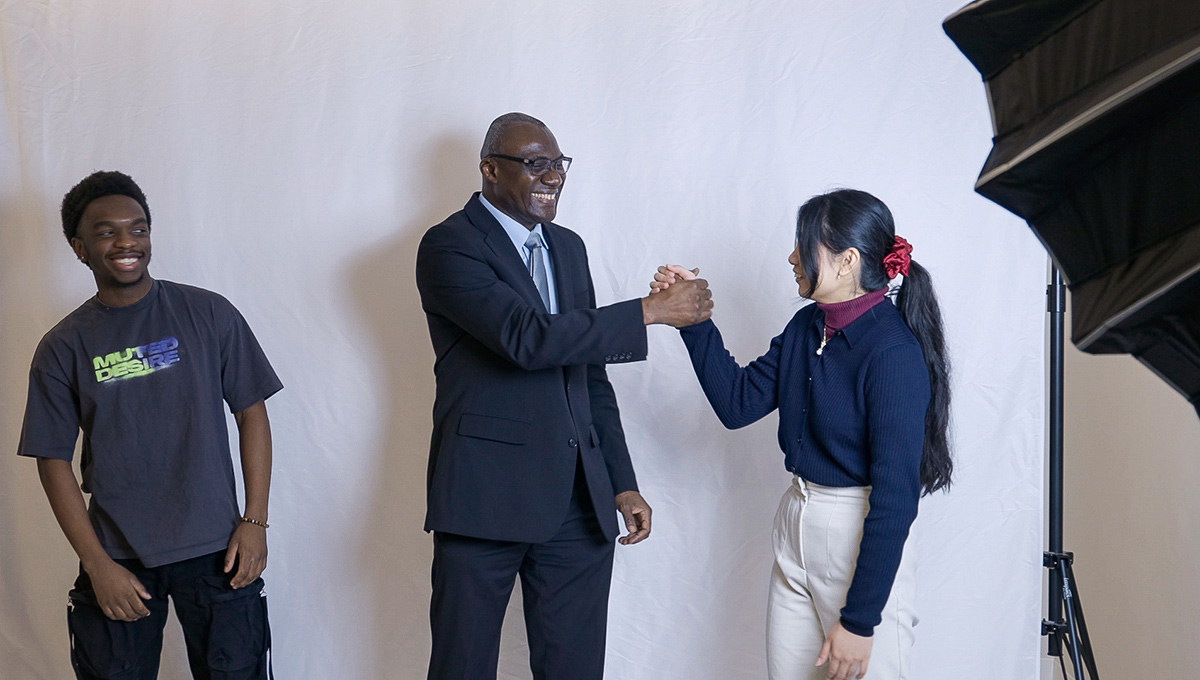
Friday, January 3, 2025 in Leadership, President
Share: Twitter, Facebook

